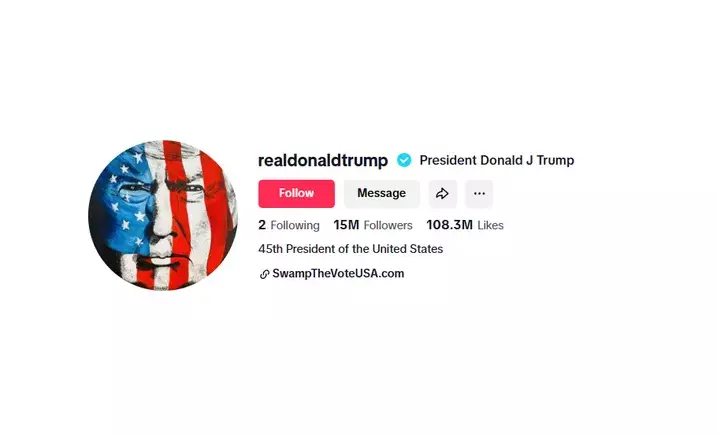The ongoing saga of TikTok’s status in the United States raises significant questions about the intersection of technology, law, and politics. While the popular social media app continues to operate despite an official ban, its future remains precarious. This article will dissect the current scenario surrounding TikTok’s legal entanglements and the roles played by political figures, particularly former President Donald Trump, as well as the implications for U.S. users and technology providers.
The legislative backdrop to the TikTok ban is rooted in concerns about national security. A Senate-approved bill, titled the “Protecting Americans from Foreign Adversary Controlled Applications Act,” was recently upheld by the Supreme Court, raising alarms that TikTok could be forced to cease operations as of January 19. The legislation symbolizes a bipartisan warning against potential threats posed by foreign technologies perceived to be under the influence of adversarial governments. Yet, profound ambiguity surrounds the law’s implementation, particularly as the outgoing Biden administration opted for a temporary non-enforcement strategy.
This decision introduced a window of uncertainty, which culminated in a brief TikTok blackout. With app stores facing potential penalties of $5,000 per user for violating the law, companies like Apple and Google displayed caution and hesitated to allow TikTok’s availability in their digital marketplaces. This is reflective of their broader concerns about regulatory liabilities and future interactions with the government, particularly under the new administration.
Upon taking office, Trump extended a lifeline to TikTok by granting a 75-day extension on the bill’s enforcement timeline. His administration’s assurances provided the app a temporary reprieve; however, legal experts have raised questions about the legitimacy of such an extension. Given that the law became effective shortly before the extension was granted, there are lingering doubts about whether this move adequately shields TikTok or its providers from legal repercussions.
Adding to the complexity of the situation, Oracle emerged as a key player by providing essential back-end support for TikTok. The tech firm’s acceptance of Trump’s assurances regarding non-prosecution reflects a striking dynamic in the relationship between private corporations and government policies. Despite the uncertainties surrounding TikTok’s legality, Oracle is likely placed in a more favorable position compared to larger tech entities like Apple and Google, which remain hesitant.
The overwhelming bipartisan support for the TikTok ban—431 votes in favor against just 83 opposing—underscores the prevailing anxiety that lawmakers from both parties feel toward the platform. Confidential security briefings provided to lawmakers have fueled fears about TikTok’s implications, suggesting that there may be undisclosed threats discerned from these assessments. The national security narrative, however, has not escaped scrutiny, with various groups questioning whether such measures serve a legitimate purpose or if they are a guise for broader political maneuvering.
The immediate consequences of these actions influence not just TikTok but the broader tech ecosystem in the U.S. The paralysis caused by political indecision may inhibit innovation and stifle competition as companies assess the risks of regulatory backlash. Tech giants, who depend on public goodwill and consumer engagement, will be scrutinizing the evolving situation with caution.
Despite the hurdles, TikTok’s operational continuation within the U.S. raises profound implications for its users, content creators, and stakeholders. As of now, American users can access TikTok, but this does not ensure its long-term viability. Political uncertainties and potential legal ramifications could lead to sudden changes that disrupt the platform’s accessibility.
The question arises: what does the future hold for TikTok users and its parent company? While Trump’s administration may perceive an opportunity to negotiate favorable terms—such as pushing for U.S. ownership stakes—this strategy could ultimately exacerbate existing tensions and bring further instability to the platform’s status.
TikTok’s current operational state underscores an ongoing struggle between technological advancement, legal frameworks, and the political landscape. Users and tech companies alike must navigate this turmoil while hoping for a resolution that balances national security concerns with the freedom to innovate and communicate. As the situation evolves, the developments within this space will undoubtedly shape the way social media operates under U.S. law for years to come.

